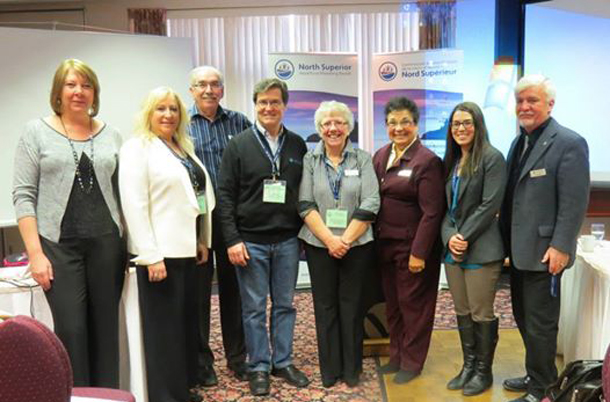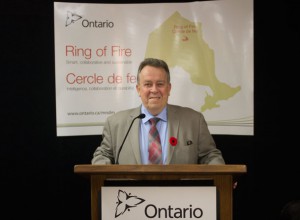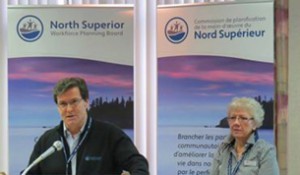
THUNDER BAY – The North Superior Workforce Planning Board has released Visual Timeline of Occupational needs and Skills demands in mining.
This fluid resource tool was developed for the NSWPB’s recent study entitled Occupational Time Continuum in Mining. The tool will provide a timeline continuum of the projected occupational and skills demands in mining projects over the next ten years in Northern Ontario.
At issue was firming up some of the projections for employment that have ranged from 2000 to as many as 50,000 jobs in the mining sector in the region.
The NSWPB’s study was completed in collaboration with community partners including the Thunder Bay CEDC and Confederation College.

Michael Gravelle, Ontario’s Minister of Northern Development and Mines stated “As the population ages and Ontario’s mining industry continues to grow, youth across the north will play a vital role, serving as the next generation of engineers, geologists, miners and skilled tradespeople. I applaud the work of the North Superior Workforce Planning Board for the development of this exciting new tool that will bring new light to the many career opportunities available across Ontario’s mining sector.”
Executive Director, Madge Richardson says “It is very exciting to have been the lead in this research and especially to have developed the capability to identify projected hiring requirements in mining based on the sector activity at any given time”.
Elaine Kerr, NSWPB Labour Co-Chair, states that “the identification of jobs that will be needed during the construction and production phases of mining projects will promote diversification of our labour force to fill the demands in that sector as well as the many indirect jobs that arise in response to that development r”.

Frank Pullia, NSWPB Business Co-Chair, commented, “Our dynamic Timeline tool will allow us to identify what occupations and skills are needed and when they are needed to ensure a skilled workforce is ready whenever the demand occurs.”
“After the demise of the Forestry industry, mining is now providing our region with a great opportunity for new jobs and prosperity. Our ability to get ready to realize such opportunities is now becoming more and more important, as there is ample evidence that the mining workforce is highly mobile and companies will recruit from outside if they cannot find the trained workers from within the region”.
“This study is a great tool that gives us the ability to measure annual workforce requirements by occupation therefore allowing the educators and training organizations like Employment Service providers, College and University to better prepare our workers to find meaningful employment in this growing industry.”
The Planning Board has for years taken a leading and active role in workforce development and we will continue to work with our community partners to ensure that we are ready and able to take advantage,” concluded Pullia.
The Northwestern Ontario region is forecasting significant growth in mineral exploration and mining development. This growth is expected to result in substantial economic and social development for Thunder Bay, its surrounding municipalities and First Nation Communities.
In February 2012, North Superior Workforce Planning Board (NSWPB) released its Mining Industry Human Resources Study that forecasted labour market needs within Mining across the Thunder Bay District over the next 2, 5 and 10 years.
For more information visit North Superior Workforce Planning Board.
Occupational Time Continuum in Mining (March 28-2014)











